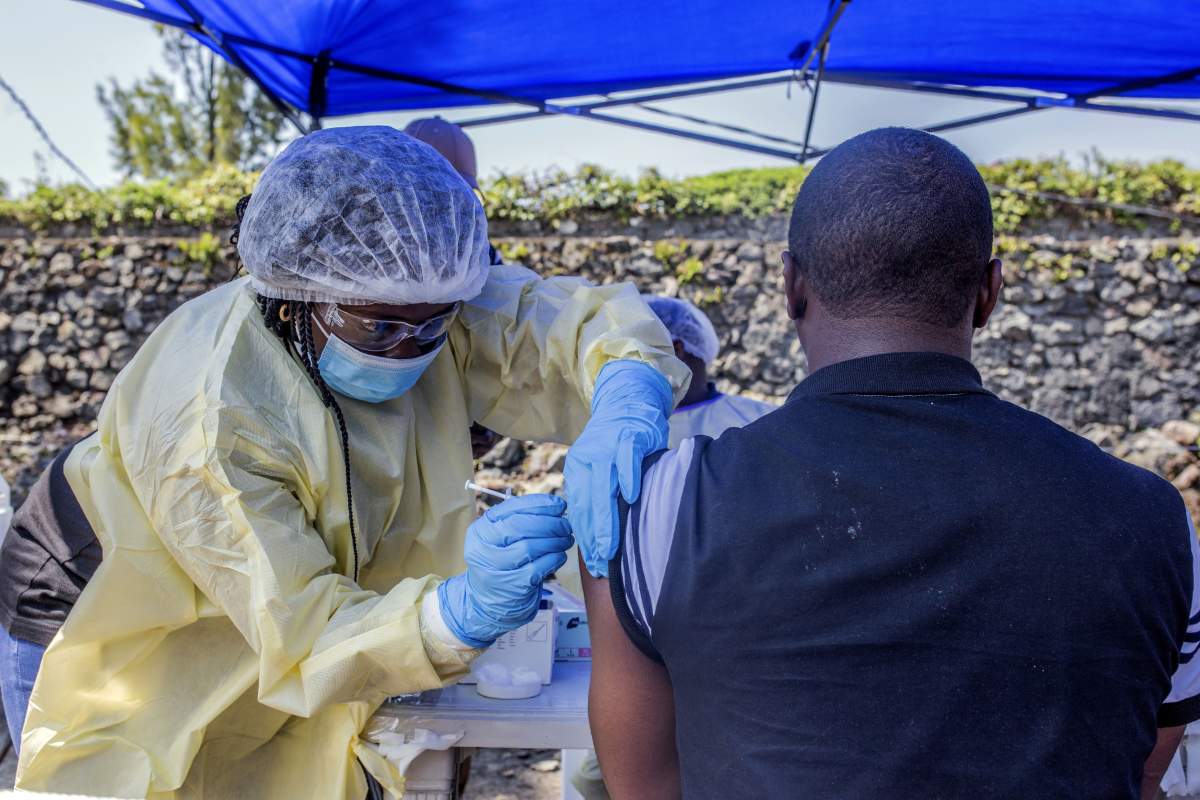The World Health Organization has declared Congo’s Ebola outbreak an international health emergency, after the virus threatened to spread to a major city and into neighboring countries.

The response has been hampered by frequent militia violence and low public trust. Below is a timeline of the latest Ebola epidemic.
August 1 2018
Congo health ministry declares four cases in the eastern town of Mangina, 100 km from the Ugandan border in a province beset by militia violence. It marks the start of Congo’s 10th Ebola outbreak since 1976.
The announcement comes eight days after another Ebola outbreak in western Congo was successfully contained with the use of an experimental new vaccine from Merck.
WHO head Tedros Adhanom Ghebreyesus says he is confident in Congo’s ability to contain the virus. WHO sends staff and supplies.
WATCH: WHO calls on international community to help with Ebola response

August 2, 2018
The WHO says the virus is likely spread over tens of kilometers and poses a high regional risk given its proximity to borders.
Health officials in Mangina rush to educate the public about the risks of Ebola and how to stop its spread.
Ebola identified as the deadliest Zaire strain, for which however an experimental vaccine exists.
August 4, 2018

Get weekly health news
Congo health ministry says outbreak has likely killed 33 people. Suspected cases are detected in North Kivu province, where Mangina is located, and neighboring Ituri province.
August 8, 2018
Congo and WHO begin vaccinating health workers. 43 people are believed to have been infected including 36 who have died. 900 contacts are identified for monitoring.
August 17, 2018
Militia violence prevents aid workers from reaching some potential cases. Over 2,000 people have been potentially exposed to the virus.
September 5, 2018
First Ebola death recorded in trading hub of Butembo, a city of almost a million with links to Uganda. Death toll hits 85.
September 25, 2018
The WHO says it is “extremely concerned” about the outbreak as the death toll reaches 100, two days after militias kill 12 civilians in the town of Beni, near the outbreak’s epicenter.
October 17, 2018
WHO emergency committee falls short of declaring a public health emergency of international concern, but warns it will worsen unless the response is stepped up. Death toll hits 139.
November 2, 2018
Uganda starts vaccinating health workers.
November 29, 2018
Outbreak becomes the second biggest ever, with 426 cases and 245 deaths, the health ministry says. The West Africa outbreak in 2013-16 killed over 11,000 people.
February 24-27, 2019
Two MSF Ebola treatment centers are attacked by armed assailants and set on fire.
March 25, 2019
Ebola cases hit 1,000, five days after the virus is detected in Bunia, a city with close to 1 million people.
April 12, 2019
WHO says the outbreak still does not constitute an international emergency.
May 3, 2019
The death toll rises above 1,000. Attacks on treatment centers by armed groups continue.
May 28, 2019
A mob in Vusahiro village kill an Ebola health worker and loot a clinic. WHO says between Jan and early May, there were 42 attacks on health facilities, with 85 workers either injured or killed.
June 4, 2019
Ebola cases top 2,000 as the rate of new cases triples.
June 11-12, 2019
Uganda confirms its first case, a 5-year-old Congolese child who dies the next day. A day later, two new cases are reported.
July 14, 2019
First case detected in Goma, with a population of more than one million. The patient, a priest, is pronounced dead by authorities two days later.
WATCH: Vaccine for Ebola administered in Congo’s Goma

July 17, 2019
WHO declares outbreak an international health emergency.
- Trump doubles down after U.S. Supreme Court strikes down global tariffs
- Canada warns First Nations people to carry passport when crossing U.S. border
- Abandoned baby monkey Punch dragged by older macaque in heartbreaking video
- Trump tariff ruling does not mean the end of U.S. trade wars. What to know










Comments
Want to discuss? Please read our Commenting Policy first.